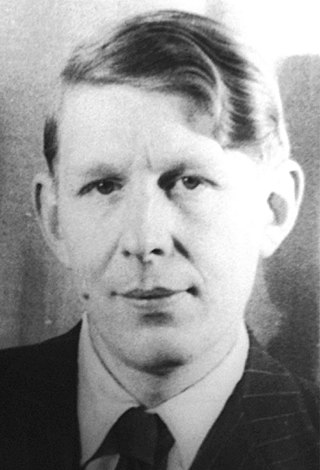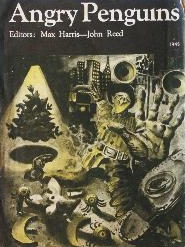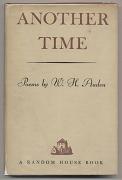Related Research Articles

Wystan Hugh Auden was a British-American poet. Auden's poetry is noted for its stylistic and technical achievement, its engagement with politics, morals, love, and religion, and its variety in tone, form, and content. Some of his best known poems are about love, such as "Funeral Blues"; on political and social themes, such as "September 1, 1939" and "The Shield of Achilles"; on cultural and psychological themes, such as The Age of Anxiety; and on religious themes, such as "For the Time Being" and "Horae Canonicae".

A Tomb of the Unknown Soldier or Tomb of the Unknown Warrior is a monument dedicated to the services of an unknown soldier and to the common memories of all soldiers killed in war. Such tombs are located in many nations and are usually high-profile national monuments. Throughout history, many soldiers have died in war with their remains being unidentified. Following World War I, a movement arose to commemorate these soldiers with a single tomb, containing the body of one such unidentified soldier.

Christopher William Bradshaw Isherwood was an Anglo-American novelist, playwright, screenwriter, autobiographer, and diarist. His best-known works include Goodbye to Berlin (1939), a semi-autobiographical novel which inspired the musical Cabaret (1966); A Single Man (1964), adapted as a film by Tom Ford in 2009; and Christopher and His Kind (1976), a memoir which "carried him into the heart of the Gay Liberation movement".

Cecil Day-Lewis, often written as C. Day-Lewis, was an Anglo-Irish poet and Poet Laureate of the United Kingdom from 1968 until his death in 1972. He also wrote mystery stories under the pseudonym of Nicholas Blake, most of which feature the fictional detective Nigel Strangeways.

The Sorrows of Young Werther, or simply Werther, is a 1774 epistolary novel by Johann Wolfgang Goethe, which appeared as a revised edition in 1787. It was one of the main novels in the Sturm und Drang period in German literature, and influenced the later Romantic movement. Goethe, aged 24 at the time, finished Werther in five and a half weeks of intensive writing in January to March 1774. It instantly placed him among the foremost international literary celebrities and was among the best known of his works. The novel is made up of biographical and auto-biographical facts in relation to two triangular relationships and one individual: Goethe, Christian Kestner, and Charlotte Buff ; Goethe, Peter Anton Brentano, Maximiliane von La Roche, and Karl Wilhelm Jerusalem, who died by suicide on the night of Oct 29 or 30, 1772. He shot himself in the head with a pistol borrowed from Kestner. The novel was adapted as the opera Werther by Jules Massenet in 1892.
Ten-codes, officially known as ten signals, are brevity codes used to represent common phrases in voice communication, particularly by US public safety officials and in citizens band (CB) radio transmissions. The police version of ten-codes is officially known as the APCO Project 14 Aural Brevity Code.

Iosif Aleksandrovich Brodsky was a Russian and American poet and essayist. Born in Leningrad in the Soviet Union, Brodsky ran afoul of Soviet authorities and was expelled from the Soviet Union in 1972, settling in the United States with the help of W. H. Auden and other supporters. He taught thereafter at Mount Holyoke College, and at universities including Yale, Columbia, Cambridge, and Michigan. Brodsky was awarded the 1987 Nobel Prize in Literature "for an all-embracing authorship, imbued with clarity of thought and poetic intensity". He was appointed United States Poet Laureate in 1991.

The Tomb of the Unknown Soldier is a tomb situated before the National War Memorial in Confederation Square, Ottawa, Ontario. The tomb is dedicated to Canadian service members, and holds the remains of an unidentified Canadian soldier who died in France during the First World War; selected from a Commonwealth War Grave near Vimy, in the vicinity where the Battle of Vimy Ridge took place. A similar memorial was installed in June of 2024 at the National War Memorial in St. John's, Newfoundland to contain the unidentified Great War remains of a soldier of the Royal Newfoundland Regiment.

Frederick Louis MacNeice was an Irish poet, playwright and producer for the BBC. His poetry, which frequently explores themes of introspection, empiricism, and belonging, is considered to be among the greatest of twentieth century literature. Despite being renowned as a member of the Auden Group, he was also an independently successful poet with an influential body of work, which is replete with themes ranging from faith to mortality. His body of work was appreciated by the public during his lifetime, due in part to his relaxed but socially and emotionally aware style. Never as overtly or simplistically political as some of his contemporaries, he expressed a humane opposition to totalitarianism as well as an acute awareness of his roots.

Anthony Evan Hecht was an American poet. His work combined a deep interest in form with a passionate desire to confront the horrors of 20th century history, with the Second World War, in which he fought, and the Holocaust being recurrent themes in his work.

"Musée des Beaux Arts" is a 23-line poem written by W. H. Auden in December 1938 while he was staying in Brussels, Belgium, with Christopher Isherwood. It was first published under the title "Palais des beaux arts" in the Spring 1939 issue of New Writing, a modernist magazine edited by John Lehmann. It next appeared in the collected volume of verse Another Time, which was followed four months later by the English edition.
J. D. "Sandy" McClatchy was an American poet, opera librettist and literary critic. He was editor of the Yale Review and president of The American Academy of Arts and Letters.

Angry Penguins was an art and literary journal founded in 1940 by surrealist poet Max Harris, at the age of 18. Originally based in Adelaide, the journal moved to Melbourne in 1942 once Harris joined the Heide Circle, a group of avant-garde painters and writers who stayed at Heide, a property owned by art patrons John and Sunday Reed. Angry Penguins subsequently became associated with, and stimulated, an art movement that would later be known by the same name. Key figures of the movement include Sidney Nolan, Arthur Boyd, Joy Hester, Gray Smith, and Albert Tucker.
"Funeral Blues", or "Stop all the clocks", is a poem by W. H. Auden which first appeared in the 1936 play The Ascent of F6. Auden substantially rewrote the poem several years later as a cabaret song for the singer Hedli Anderson. Both versions were set to music by the composer Benjamin Britten. The second version was first published in 1938 and was titled "Funeral Blues" in Auden's 1940 Another Time. The poem experienced renewed popularity after being read in the film Four Weddings and a Funeral (1994), which also led to increased attention on Auden's other work. It has since been cited as one of the most popular modern poems in the United Kingdom.

"Pangur Bán" is an Old Irish poem written in about the 9th century at or near Reichenau Abbey, in what is now Germany, by an Irish monk about his cat. Pangur Bán, 'White Pangur', is the cat's name, Pangur possibly meaning 'a fuller'. Although the poem is anonymous, it bears similarities to the poetry of Sedulius Scottus, prompting speculation that he is the author. In eight verses of four lines each, the author compares the cat's happy hunting with his own scholarly pursuits.

Another Time is a book of poems by W. H. Auden, published in 1940.

"In Praise of Limestone" is a poem written by W. H. Auden in Italy in May 1948. Central to his canon and one of Auden's finest poems, it has been the subject of diverse scholarly interpretations. Auden's limestone landscape has been interpreted as an allegory of Mediterranean civilization and of the human body. The poem, sui generis, is not easily classified. As a topographical poem, it describes a landscape and infuses it with meaning. It has been called the "first … postmodern pastoral." In a letter, Auden wrote of limestone and the poem's theme that "that rock creates the only human landscape."
The name-letter effect is the tendency of people to prefer the letters in their name over other letters in the alphabet. Whether subjects are asked to rank all letters of the alphabet, rate each of the letters, choose the letter they prefer out of a set of two, or pick a small set of letters they most prefer, on average people consistently like the letters in their own name the most. Crucially, subjects are not aware that they are choosing letters from their name.
Citizen X or CitizenX may refer to:
Shmoop University Inc. is a for-profit online educational technology company that specializes in test preparation materials, mental health tools, and learning content for K-12 schools. Shmoop offers free study guides aimed at teens on a range of subjects, including literature, biology, poetry, U.S. History, civics, financial literacy, and music.
References
- ↑ Auden, W. H. (1942). "The Unknown Citizen". Another Time. Random House. Archived from the original on 16 January 2013. Retrieved 28 February 2013.
- ↑ Haffenden, John. "W.H. Auden." Routledge, 1983.
- ↑ Shmoop Editorial Team (11 November 2008). "Home (*) Poetry (*) The Unknown Citizen (*) Introduction". Shmoop University, Inc. Archived from the original on 9 November 2013. Retrieved 8 November 2013.
- ↑ Hewett, Ronald. "A Choice of Poets." London: Harrap, 1968.